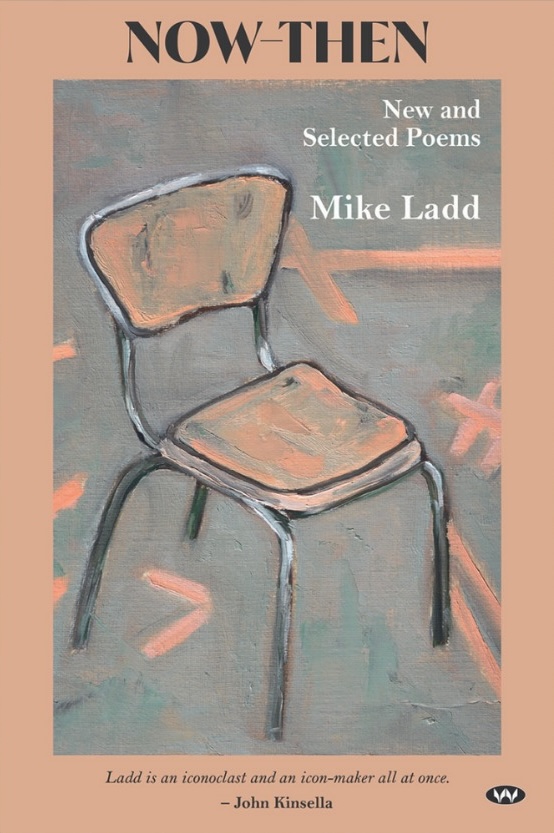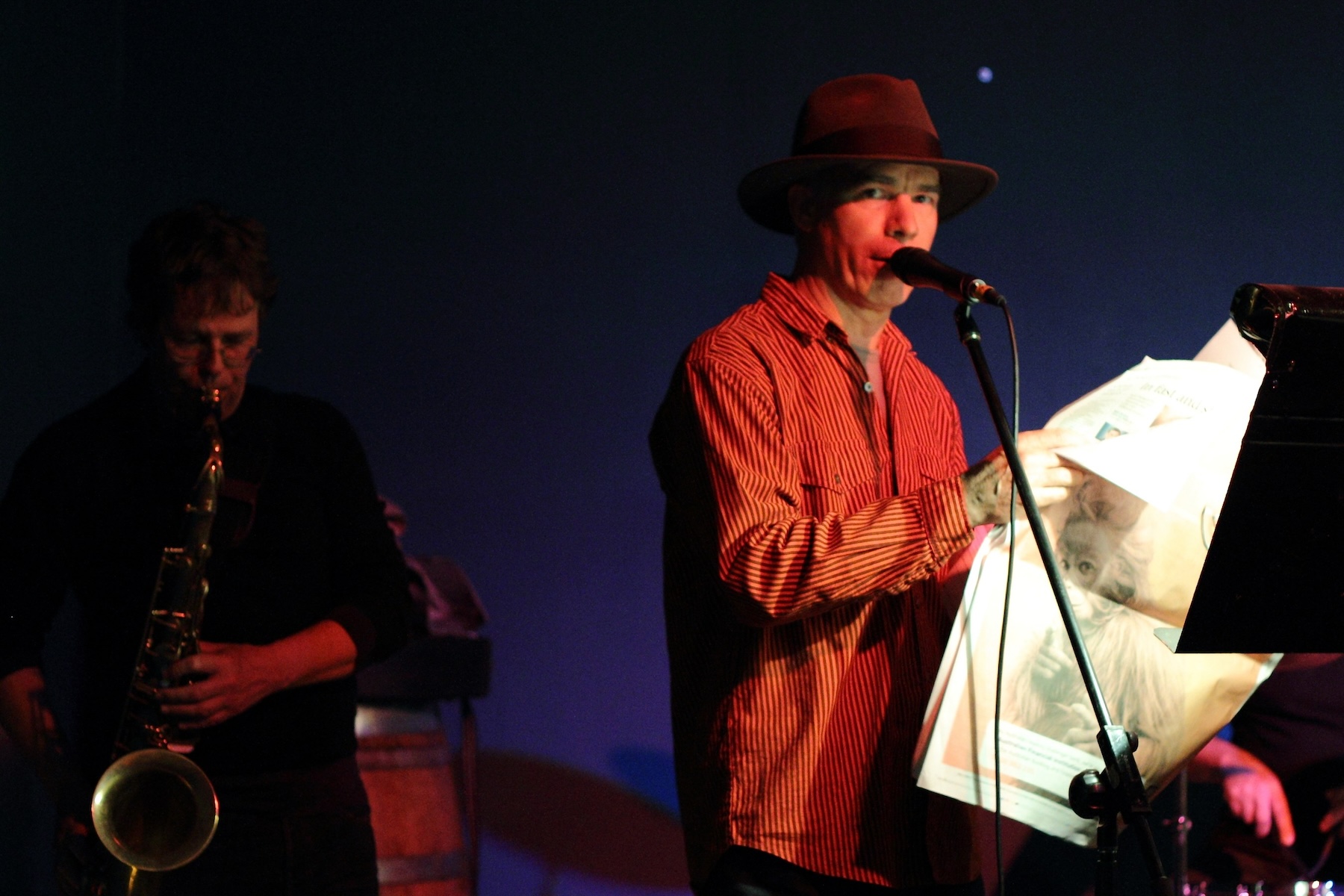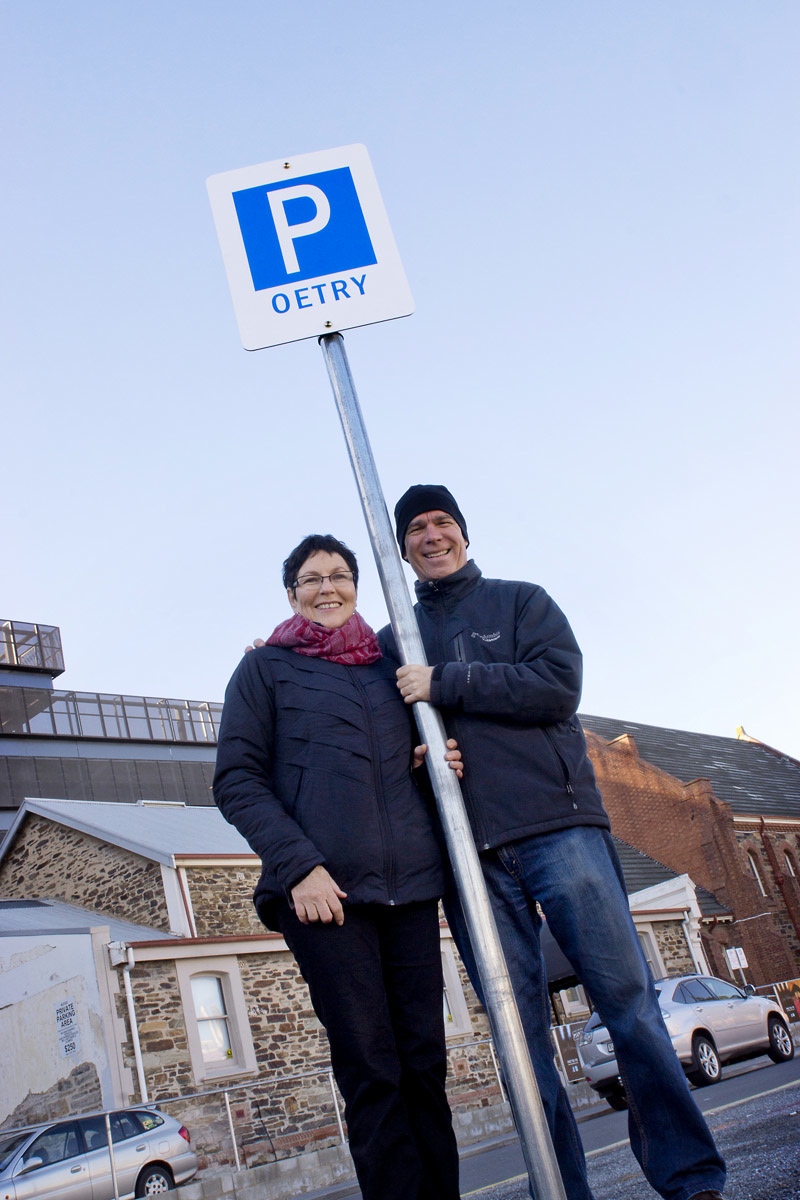‘You can’t hide yourself in a poem’: Mike Ladd reflects on four decades of connection
Beloved South Australian poet Mike Ladd’s new collection draws from forty years of poetry, from minimalist beginnings to fresh pieces written in the shadow of pandemic and climate crisis.

When Adelaide poet, writer and broadcaster Mike Ladd sat down to select poems for Now-Then: New and Selected Poems, a book spanning his debut in 1984 to new work shaped by grief and climate emergency, he was struck not only by the variety of styles and influences, but also by the threads of sound, place, memory and voice that bind them together.
“I had a couple of reader friends who handed me lists of poems they wanted included,” he tells InReview of the book’s selection process. “I did consult, because your taste varies a lot; one week you love a poem, and the next you’ve gone off it.”
The result is a lean selection that both reflects Ladd’s changing phases and highlights his enduring preoccupations.
“I kept asking myself, do I have a style? Looking back, I think I can recognise that I have a certain way of looking at the world, a kind of visual imagery that’s a bit flinty in its vision. And it’s a style that works with sound. Right through all the different phases of my work, there’s a certain amount of internal sonic reflection and repeated patterns.”
The phases Ladd noticed while collating Now-Then were shaped by encounters with influential poets, places and his own political concerns.

You might like
“If you go back to Picture’s Edge [1994] I got to work with Miroslav Holub, a European minimalist. You can see my poems pared down to the bone, through his influence. Later there was a postmodernist phase, with poems like ‘Anakhronismos’, where I was creating fake translations from the Roman Empire in which Adelaide was a Roman outpost, but I was really talking about contemporary South Australia. And Rome was probably America.”
Other books reveal further influences, such as the Asian sensibilities of Invisible Mending (2016) with its Malay pantuns and the Japanese haibun of Karrawirri Parri: Walking the Torrens from Source to Sea (2012), which Ladd let stand alone as a prose work rather than seat it among his other collections.
Ladd’s recent poems are also inflected with grief and loss, both personal and ecological. “I’ve reached a stage of life where I’m losing friends and family. So there’s a certain elegiac tone. And you can’t ignore what’s going on in the world. The recent poems were written during the pandemic and climate crisis. These things influence the tone of the work and the subject matter, for sure.”
The use of elegy often leaks into his writing about landscape and history. Ladd sees country as layers of time – contemporary life laid over pre-colonial foundations, over geological and cultural deep time.
“That idea of layering is important to me. All of Australia is so rich with story, if you look back beyond colonisation. Bruce Pascoe says something really interesting: why does the history of this country always start with soldiers and sheep farmers? It goes much further back.”
Ladd dates this sense of awareness to his upbringing.
Subscribe for updates
“My parents, particularly my mother, felt very strongly about Indigenous people’s rights. We had a lot of literature about that in the home when I was growing up. So I probably had that awareness fairly early. I even learned Kaurna from Jack Buckskin. Place has always been important to my writing.”
But, while his poems carry an awareness of injustice and history, Ladd is careful not to call himself an ‘activist poet’. “It’s a delicate balance. You don’t want to lecture people or turn something into a rant – so, I’m not an activist poet in that sense, but I’m a poet that is also an activist. I go to rallies. And I take direct action from time to time. I’d like to do more – I think we all have to do more. I’ve had a good run, but now I’ve got a granddaughter and I think it’s not fair to leave this mess.”

Sound has always been central to Ladd’s poetry, from his very earliest recollections. “My first memory of poetry is probably from when I was three or four years old with my grandmother bathing me in a tub. She used to sing this little chant ‘Swim, Sam, swim. Swim like a swan…’ I can remember that language and how it synched with the swishing water and the ‘s’ sounds. There was something about the language that I loved, the sonic quality of it, and that’s haunted me right through all my work.”
That ear for sound found a natural home in broadcasting. From 1997 to 2015, Ladd produced and presented Poetica on ABC Radio National, a landmark program for poetry in Australian media that saw him connect with a global community of poets including Seamus Heaney, Les Murray, Robert Gray, and Gwen Harwood.
“That was the dream job for me. I was combining sound – the human voice, music, natural sounds and archival sound – weaving them into a piece. I used to see it as making a kind of radio poem, not just putting poetry on the radio. I even experimented with transferring radio techniques – like cuts and fades – into text on the page.”
Ladd has also worked with his partner artist Cathy Brooks on short films, live projection poetry performances, video poems shown on SBS, and public installations like the Bowen Street Project, which placed poems on street signs. “That’s been a life-long collaboration,” he says. “We’ve done lots of work together, right back to the 1980s. And Cath’s work has been on the cover of every one of my books.”

Asked what he hopes readers will take from Now-Then, Ladd is modest. “I’d like them to find some use for these poems – that they like them enough to quote them at some point or give them to a friend. That it has some relevance to people’s lives. To be useful, I wouldn’t mind being useful.”
That usefulness, for Ladd is bound up with poetry’s unique ability to connect with people. “One of the beautiful things that poetry does is it can break down isolation between people. It lets you know how someone else is thinking and feeling in a really deep way. You can’t hide yourself in a poem. That’s a really powerful thing – especially in these times, when there are more and more forces dividing people and producing rage. Poetry can be a counter to that. And that’s beautiful.”
Now-Then: New and Selected Poems is published by Wakefield Press, the Adelaide-based publisher that has supported Ladd for decades.
“I’m very grateful,” he reflects. “It’s great that a local press is still publishing poetry. They’re not making a fortune, but it means poetry still has a life.”
Now-Then: New and Selected Poems (Wakefield Press) is out now
Free to share
This article may be shared online or in print under a Creative Commons licence

